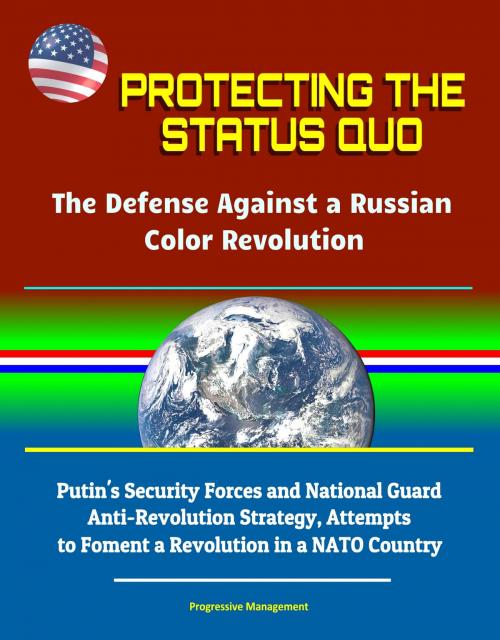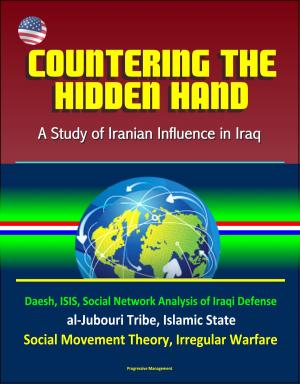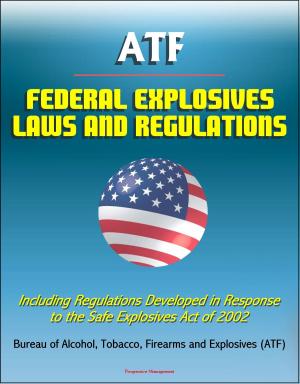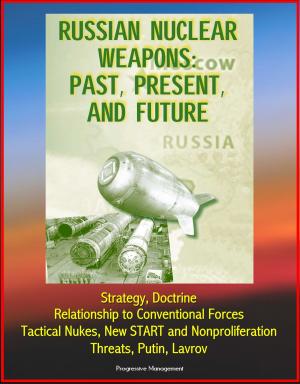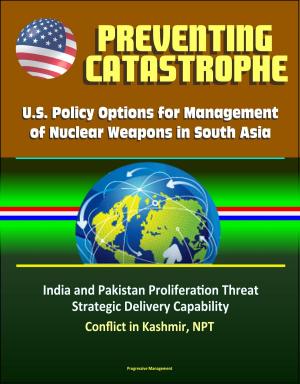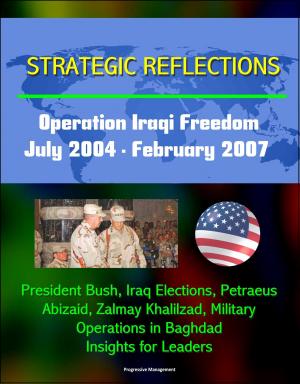Protecting the Status Quo: The Defense Against a Russian Color Revolution - Putin's Security Forces and National Guard Anti-Revolution Strategy, Attempts to Foment a Revolution in a NATO Country
Nonfiction, History, Asian, Russia, Social & Cultural Studies, Political Science, International| Author: | Progressive Management | ISBN: | 9780463551417 |
| Publisher: | Progressive Management | Publication: | June 21, 2018 |
| Imprint: | Smashwords Edition | Language: | English |
| Author: | Progressive Management |
| ISBN: | 9780463551417 |
| Publisher: | Progressive Management |
| Publication: | June 21, 2018 |
| Imprint: | Smashwords Edition |
| Language: | English |
This important December 2017 report has been professionally converted for accurate flowing-text e-book format reproduction.
This study examines Russia's reaction to the recent electoral revolutions and mass protest movements across Europe, the Middle East, and North Africa, all of which the Russians labeled "color revolutions." More explicitly, it analyzes Russian understanding of the color revolution threat, the Russian security forces' actions to address vulnerabilities to the threat, the non-military actions taken to minimize the threat, and the military efforts made to both support and to gain the support of Russia's regional allies.
Russia's understanding and reaction to the color revolution threat is one largely driven by the West's perceived role in color revolutions. Russia has succeeded in severing the ties between Western democratization efforts and Russian civil society, while Russia's new National Guard strengthens the tie between the Kremlin and the country' s internal coercive forces. However, Russia's military has largely not reacted to the threat, and the country' s efforts to gain allies against the threat have received only half-hearted support. Overall, Russia's anti-color revolution strategy, if it can be called a strategy, has been executed unevenly across the various ministries; but understanding how Russia perceives and reacts to the threat is essential, especially if Russia uses what it has learned to foment a color revolution in a NATO country.
I. INTRODUCTION * A. THE THREAT AS RUSSIA SEES IT * B. A MILITARY EMPHASIS ON THE NEW THREAT * C. THE IDEA OF A COORDINATED RUSSIAN "STRATEGY" * D. THE NEED TO UNDERSTAND YOUR ADVERSARY * E. RESEARCH METHODOLOGY * II. UNDERSTANDING THE THREAT * A. SOURCES OF RESISTANCE TO CHANGE * 1. Organizational Resistance to Change * 2. Cultural Resistance to Change * B. THE COLOR REVOLUTION DISCUSSION THUS FAR * 1. Military Doctrine of the Russian Federation * 2. Russia's Informal Military Doctrine * 3. Color Revolution Defenses * C. A DELAYED RESPONSE TO COLOR REVOLUTIONS * III. REACTION TO COLOR REVOLUTIONS * A. THE ROSGVARDIYA: CREATING A MORE RELIABLE COERCIVE FORCE * B. NATIONAL DEFENSE MANAGEMENT CENTER * C. STRENGTHENED COERCIVE CONTROL * IV. SUPPORT SYSTEMS * A. PREVENTING THE DEVELOPMENT OF THREATS * B. MINIMIZING AND DISRUPTING GROWING THREATS * C. SUPPORTING RUSSIA'S SECURITY FORCES TO COPE WITH THREATS * D. AN INCOMPLETE AND HALF-HEARTED SUPPRESSION OF CIVIL SOCIETY * V. PARTNERS AND ALLIES * A. RUSSIAN SUPPORT FOR LIKE-MINDED ALLIES * B. CSTO SUPPORT FOR RUSSIAN ACTIONS ABROAD * C. RUSSIA'S APATHETIC ANTI-COLOR REVOLUTION ALLIES * VI. CONCLUSION
This important December 2017 report has been professionally converted for accurate flowing-text e-book format reproduction.
This study examines Russia's reaction to the recent electoral revolutions and mass protest movements across Europe, the Middle East, and North Africa, all of which the Russians labeled "color revolutions." More explicitly, it analyzes Russian understanding of the color revolution threat, the Russian security forces' actions to address vulnerabilities to the threat, the non-military actions taken to minimize the threat, and the military efforts made to both support and to gain the support of Russia's regional allies.
Russia's understanding and reaction to the color revolution threat is one largely driven by the West's perceived role in color revolutions. Russia has succeeded in severing the ties between Western democratization efforts and Russian civil society, while Russia's new National Guard strengthens the tie between the Kremlin and the country' s internal coercive forces. However, Russia's military has largely not reacted to the threat, and the country' s efforts to gain allies against the threat have received only half-hearted support. Overall, Russia's anti-color revolution strategy, if it can be called a strategy, has been executed unevenly across the various ministries; but understanding how Russia perceives and reacts to the threat is essential, especially if Russia uses what it has learned to foment a color revolution in a NATO country.
I. INTRODUCTION * A. THE THREAT AS RUSSIA SEES IT * B. A MILITARY EMPHASIS ON THE NEW THREAT * C. THE IDEA OF A COORDINATED RUSSIAN "STRATEGY" * D. THE NEED TO UNDERSTAND YOUR ADVERSARY * E. RESEARCH METHODOLOGY * II. UNDERSTANDING THE THREAT * A. SOURCES OF RESISTANCE TO CHANGE * 1. Organizational Resistance to Change * 2. Cultural Resistance to Change * B. THE COLOR REVOLUTION DISCUSSION THUS FAR * 1. Military Doctrine of the Russian Federation * 2. Russia's Informal Military Doctrine * 3. Color Revolution Defenses * C. A DELAYED RESPONSE TO COLOR REVOLUTIONS * III. REACTION TO COLOR REVOLUTIONS * A. THE ROSGVARDIYA: CREATING A MORE RELIABLE COERCIVE FORCE * B. NATIONAL DEFENSE MANAGEMENT CENTER * C. STRENGTHENED COERCIVE CONTROL * IV. SUPPORT SYSTEMS * A. PREVENTING THE DEVELOPMENT OF THREATS * B. MINIMIZING AND DISRUPTING GROWING THREATS * C. SUPPORTING RUSSIA'S SECURITY FORCES TO COPE WITH THREATS * D. AN INCOMPLETE AND HALF-HEARTED SUPPRESSION OF CIVIL SOCIETY * V. PARTNERS AND ALLIES * A. RUSSIAN SUPPORT FOR LIKE-MINDED ALLIES * B. CSTO SUPPORT FOR RUSSIAN ACTIONS ABROAD * C. RUSSIA'S APATHETIC ANTI-COLOR REVOLUTION ALLIES * VI. CONCLUSION
